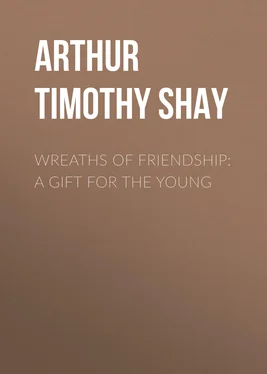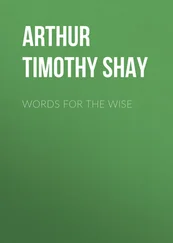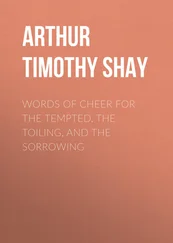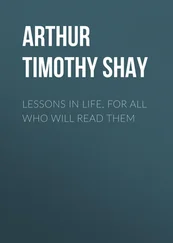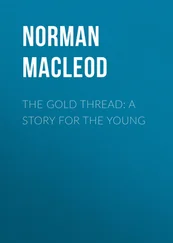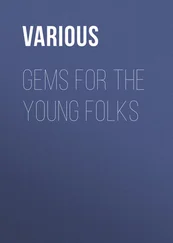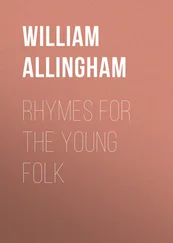Timothy Arthur - Wreaths of Friendship - A Gift for the Young
Здесь есть возможность читать онлайн «Timothy Arthur - Wreaths of Friendship - A Gift for the Young» — ознакомительный отрывок электронной книги совершенно бесплатно, а после прочтения отрывка купить полную версию. В некоторых случаях можно слушать аудио, скачать через торрент в формате fb2 и присутствует краткое содержание. Жанр: foreign_sf, literature_19, foreign_antique, foreign_prose, на английском языке. Описание произведения, (предисловие) а так же отзывы посетителей доступны на портале библиотеки ЛибКат.
- Название:Wreaths of Friendship: A Gift for the Young
- Автор:
- Жанр:
- Год:неизвестен
- ISBN:нет данных
- Рейтинг книги:3 / 5. Голосов: 1
-
Избранное:Добавить в избранное
- Отзывы:
-
Ваша оценка:
- 60
- 1
- 2
- 3
- 4
- 5
Wreaths of Friendship: A Gift for the Young: краткое содержание, описание и аннотация
Предлагаем к чтению аннотацию, описание, краткое содержание или предисловие (зависит от того, что написал сам автор книги «Wreaths of Friendship: A Gift for the Young»). Если вы не нашли необходимую информацию о книге — напишите в комментариях, мы постараемся отыскать её.
Wreaths of Friendship: A Gift for the Young — читать онлайн ознакомительный отрывок
Ниже представлен текст книги, разбитый по страницам. Система сохранения места последней прочитанной страницы, позволяет с удобством читать онлайн бесплатно книгу «Wreaths of Friendship: A Gift for the Young», без необходимости каждый раз заново искать на чём Вы остановились. Поставьте закладку, и сможете в любой момент перейти на страницу, на которой закончили чтение.
Интервал:
Закладка:
T. S. Arthur
Wreaths of Friendship: A Gift for the Young
Preface
Young friends—stop a moment. We have set up a sort of turnpike gate here, as you see, between the title-page and the first story in our book, in the shape of a preface, or introduction. "What! do you mean to take toll of us, then?" Why, no—not exactly. But we want to say half a dozen words to you, as you pass along, and to tell you a little about these WREATHS which we have been twining for our friends. So you need not be in quite so great a hurry. Wait a minute.
You have no doubt noticed that it is a very common thing for an author to take up several of the first pages of his book with apologies to his readers. First, perhaps, he apologizes for writing at all; and secondly, for writing so poorly—just as if it was a crime to make a book, for which crime the author must get down on his knees, and humbly beg the public's pardon. We think we shall not take this course, on the whole, for this reason, if for no other—that we do not feel very guilty about what we have done. But as the plan of our book is somewhat new, we have been thinking it would be well enough, in introducing it to you, at least to tell how we came to make it.
We have both of us published a good deal, in one way and another, for young people; and we got a notion—a very pleasant one, certainly, and rather natural, withal, whether well founded or not—that among that class of the public composed of boys and girls, we had a pretty respectable number of friends. Under this impression, we put our heads together, one day, and made up our minds to invite these friends of ours, every one of them, to a kind of festival, and that we would share equally in the pleasure of giving the entertainment. The book, reader, which we have named WREATHS OF FRIENDSHIP, as perhaps you have already guessed, grew out of that plan of ours.
We have not, as you will perceive, indicated the authorship of the tales and sketches, as they appear; and those readers who have any curiosity in this matter, are referred to the index.
We hope the volume will please you. More than this: we hope it will prove to be useful—useful for the future as well as for the present life; and, indeed, if it had not been for this hope, much as we love to entertain our young friends, these Wreaths would never have been twined by our hands.
We have little else to add, except the fondest wishes of our hearts; and, to tell the truth, it was to express to you these kind wishes—to give you something like a hearty shake of the hand—rather than because we had any thing of importance to say in our preface, that we stopped you at the outset.
THE AUTHORS.WHAT SHALL WE BUILD?
Four children were playing on the sea-shore. They had gathered bright pebbles and beautiful shells, and written their names in the pure, white sand; but at last, tired of their sport, they were about going home, when one of them, as they came to a pile of stones, cried out:
"Oh! let us build a fort; and we will call that ship away out there, an enemy's vessel, and make believe we are firing great cannon balls into her!"
"Yes, yes! let us build a fort," responded Edward, the other lad.
And the two boys—for two were boys and two girls—ran off to the pile of stones, and began removing them to a place near the water.
"Come, Anna and Jane," said they, "come and help us."
"Oh, no. Don't let us build a fort," said Jane.
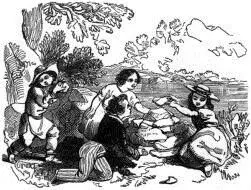
WHAT SHALL WE BUILD?
"Yes; we will build a fort," returned the boys. "What else can we build? You wouldn't put a house down here upon the water's edge?"
"No; but I'll tell you what we can build, and it will be a great deal better than a fort."
"Well; what can we build?"
"A light-house," said the girls; "and that will be just as much in place on the edge of the sea as a fort. We can call the ship yonder a vessel lost in the darkness, and we will hang out a light and direct her in the true way. Won't that be much better than to call her an enemy, and build a fort to destroy her? See how beautifully she sits upon and glides over the smooth water! Her sails are like the open wings of a bird, and they bear her gracefully along. Would it not be cruel to shoot great balls into her sides, tear her sails to pieces, and kill the men who are on board of her? Oh! I am sure it would make us all happier to save her when in darkness and danger. No, no; let us not build a fort, but a light-house; for it is better to save than to destroy."
The girls spoke with tenderness and enthusiasm, and their words reached the better feelings of their companions.
"Oh, yes," said they; "we will build a light-house, and not a fort." And they did so.
Yes, it is much better to save than to destroy. Think of that, children, and let it go with you through life. Be more earnest to save your friends than to destroy your enemies. And yet, when a real enemy comes, and seeks to do evil, be brave to resist him.
THE TWO COUSINS;
"There, mother, I knew it would be so. Lucy Wallace has just sent over to tell me she can't walk out in the woods with me. There's no use in my trying to please any body—there's no use in it. I'm an odd sort of a creature, it seems. Nobody loves me. It always was so. Oh, dear! I wish I knew what I had done to make the girls hate me so!"
This not very good-natured speech was made by a little girl, whom I shall call Angeline Standish. She was some ten or twelve years old, as near as I can recollect. Perhaps my readers would like to know something about the occasion which called for this speech; but it is a long story, and hardly worth telling. The truth is, when little boys and girls get very angry, or peevish, or fretful, they sometimes blow out a great deal of ill-humor, something after the manner that an overcharged steam boiler lets off steam—with this difference, however, that the steam boiler gets cooler by the operation, while the boy or girl gets more heated. The throat is a poor safety-valve for ill-humor; and it is bad business, this setting the tongue agoing at such a rate, whenever the mercury in one's temper begins to rise toward the boiling point.
As is usual, in such cases, Angeline felt worse after these words had whistled through the escape pipe of her ill-nature, than she did before; and, for want of something else to do, she commenced crying. She was not angry—that is, not altogether so—though the spirit she showed was a pretty good imitation of anger, it must be confessed. She was peevish. Matters had not gone right with her that day. She was crossed in this thing and that thing. Her new hat had not come home from the milliner's, as she expected; one of her frocks had just got badly torn; she had a hard lesson to learn; and I cannot repeat the whole catalogue of her miseries. So she fretted, and stormed, and cried, and felt just as badly as she chose.
Not long after the crying spell was over, and there was a little blue sky in sight, Jeannette Forrest, a cousin of Angeline's, came running into the room, her face all lighted up with smiles, and threw her arms around her cousin's neck, and kissed her. This was no uncommon thing with Jeannette. She had a very happy and a very affectionate disposition. Every body loved her, and she loved every body.
One not acquainted with Angeline, might very naturally suppose that she would return her cousin's embrace. But she did no such thing. Her manner was quite cool and distant. Human nature is a strange compound, is it not?
"Why, cousin," said the light-hearted Jeannette, "what is the matter? You are not well, are you?"
Читать дальшеИнтервал:
Закладка:
Похожие книги на «Wreaths of Friendship: A Gift for the Young»
Представляем Вашему вниманию похожие книги на «Wreaths of Friendship: A Gift for the Young» списком для выбора. Мы отобрали схожую по названию и смыслу литературу в надежде предоставить читателям больше вариантов отыскать новые, интересные, ещё непрочитанные произведения.
Обсуждение, отзывы о книге «Wreaths of Friendship: A Gift for the Young» и просто собственные мнения читателей. Оставьте ваши комментарии, напишите, что Вы думаете о произведении, его смысле или главных героях. Укажите что конкретно понравилось, а что нет, и почему Вы так считаете.
